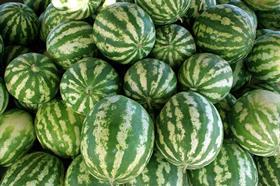
In the face of multiple current challenges, including the continuing economic crisis in Greece, Greek exporters are recognising the need to adapt.
According to John Rozakis, chief operating officer at Athens-based trader Nikolaos Politis, this new era will require exceptional corporate communication, customer relationship management, change and performance management, a direct marketing strategy, process and operations improvements, outsourcing and internal auditing.
“Our company is investing in this change,” he says. “The whole fresh fruit and vegetables sector is transforming, and businesses like Nikolaos Politis will play a critical role in its evolution.”
Nikolaos Politis was established in 1946 after the Second World War, when Alexander Politis began trading potatoes. Now led by Alexander’s sons, Nikos, Yiannis and Damianos, the company boasts eight stores in the Central Market of Athens, handling around 100,000 tonnes of potatoes, garlic, onions, citrus and watermelons a year.
“We manage the entire cycle from the seed to the storage and handling of the finished product,” says Rozakis. “We handle crops from Achaea, Boeotia and Nevrokopi and have packhouses in Attica, Corinthia, Achaea and Nevrokopi. We have partnerships with major producers and exporters in Cyprus, France, Spain, the Netherlands, Egypt, Argentina, India and China for imports of top-quality products.”
Through long-term cooperation with international firms, Nikolaos Politis is able to maintain competitive prices and the uninterrupted flow of products throughout the year.
“Through visits to all our suppliers, we are able to guarantee the controls on product selection, packing, loading and delivery of goods in compliance with Greek and European standards.”
The company is currently targeting countries including Bulgaria, Romania and Poland, especially for potatoes and watermelons.
“Demand is growing for our products, thanks to our reliability and dominant position on the Greek market,” says Rozakis. “We are expanding our sales to European markets, basing our offer on quality, consistency and price.”
According to Rozakis, one of the biggest changes occurring in the sector is the shortening of the supply chain.
“The supply chain is now any part of a product’s path from field to plate,” he says. “In a digital world, all these parts are connected, and this creates a whole new idea of collaboration. The artificial walls separating manual and off-system work are coming down and the entire supply chain is starting to focus on the consumer.”
The digitally connected supply chain is able to identify the necessary inventory to support customer demand, he says, thereby eliminating the crucial problems of excess stock and insufficient stock.



